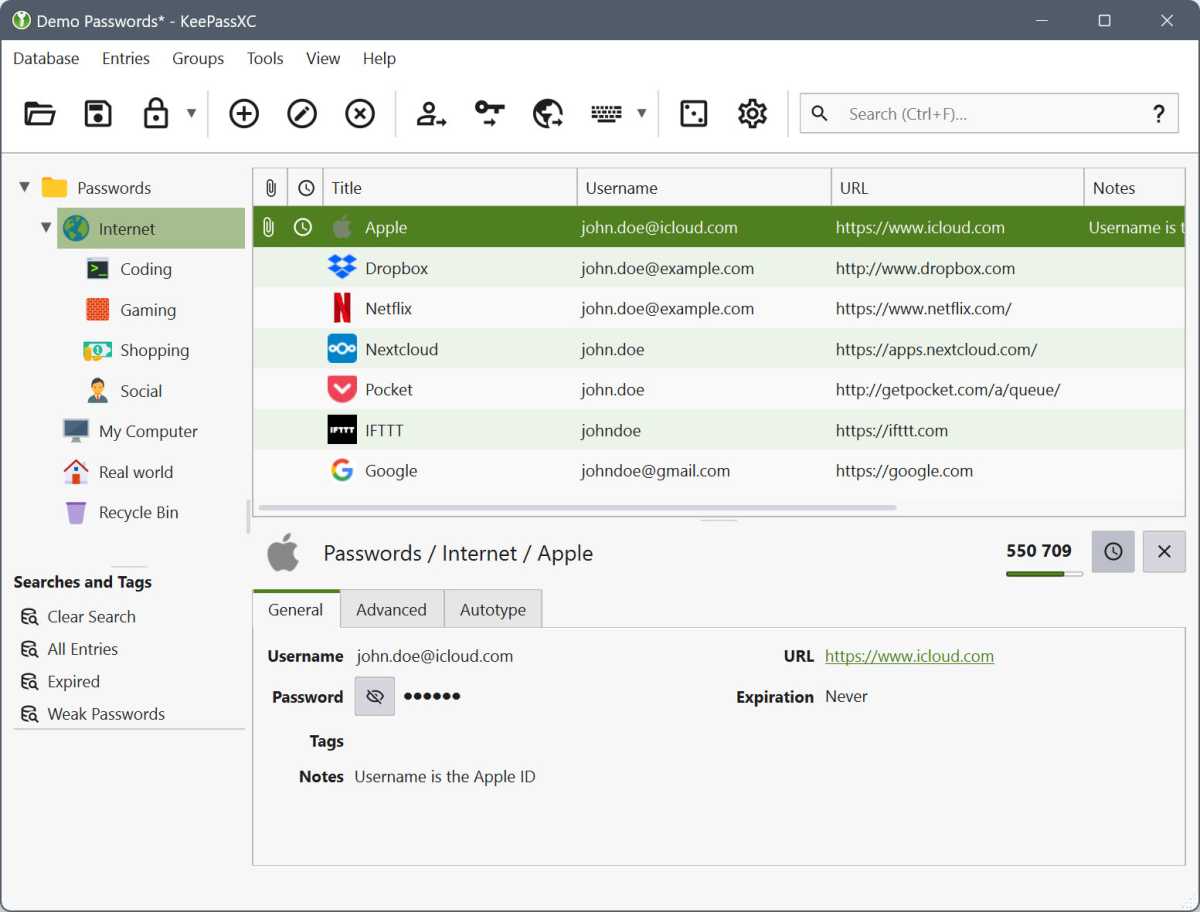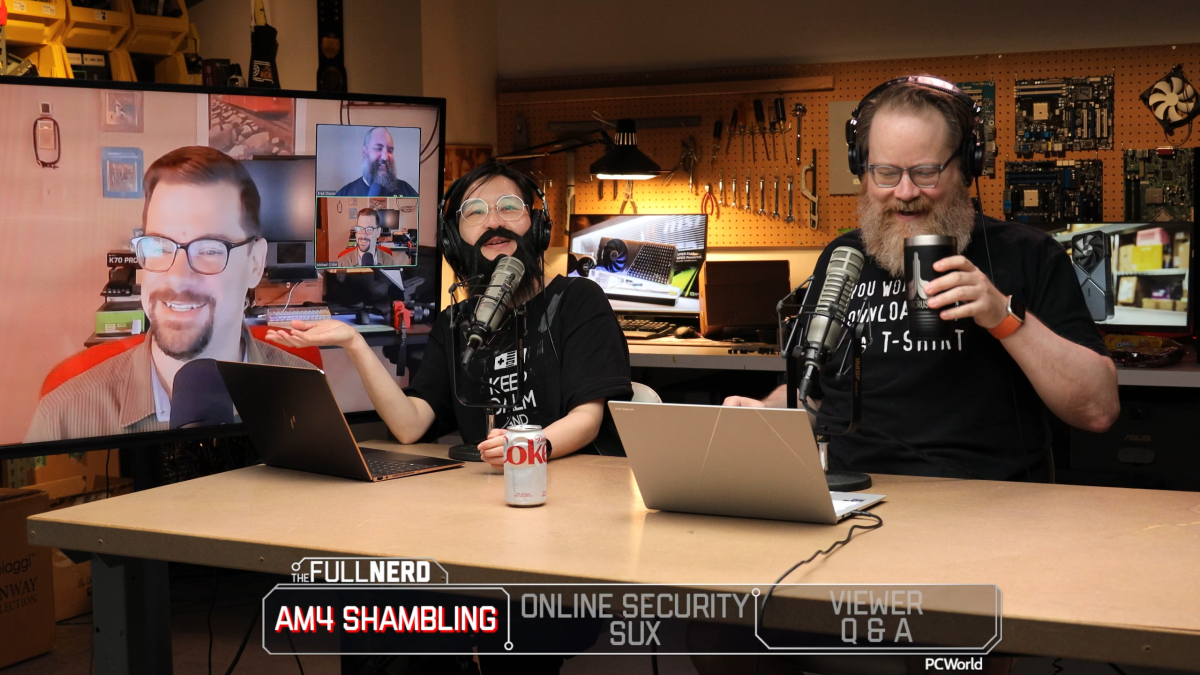Welcome to The Full Nerd newsletter—your weekly dose of hardware talk from the enthusiasts at PCWorld. Missed the latest topics on our YouTube show or the hot news from across the web? You’re in the right place.
Want this newsletter to come directly to your inbox? Sign up on our website!
I’ve been called “process oriented” more than once in my life. I don’t mind. People take systems for granted, but their structure provides a sense of safety and security. Until they don’t.
I feel a lot people missed the point last month, when news circulated about 2.5 billion Google users potentially at risk following a data leak. Everyone immediately jumped to the idea that passwords needed to be changed—not a bad instinct, as we ended up discussing on The Full Nerd this week.
But as that very conversation illustrates, people usually focus on the smaller details: who got hacked, if data was leaked, and whether a password change is warranted. (Spoiler: I believe that changing a password takes so little time, you should just do it when the topic ever comes up.)
What most folks don’t focus on the fact that Google’s data leak happened through a major third-party vendor—and followed on the heels of other major companies suffering data leaks through the same source. That external company is Salesforce, no small player either.
When I hop on my computer or phone each day, I believe in the technology. I assume the services and apps I use won’t add extra demands to my day. But with the ever-expanding scope of data breaches and leaks, that trust is slipping. And perhaps it’s a good thing that it is.

A password manager is just one part of keeping on top of security disasters that are out of our control.
IDG
As end users, you and I have little control over the systems we all rely on. But we do have a say over our response to chaos. Problems occur when I assume peace and tranquility, and then a huge disruption lands on my doorstep.
Right now, people focus on what to do in the moment, and breathe a sigh of relief when the damage doesn’t appear to be widespread. For this example, Google ended up clarifying that no accounts were compromised as a result of the Salesforce leak—and the talk started turning to no one having to worry.
I’m a contrarian on this point. I say we should keep talking about how to handle online security, especially as the largest players fall victim to exploits. Not just the thing to do at the moment, but how easily a person can enact those changes.
So yes, folks should know to update their passwords any time there’s a breach. That’s still vitally important. But a user should ideally be able to rotate a password in just a few minutes, too—they should operate in a way where it can happen fast, without needing to be thought about again later on.
Because what happens on the day that Google does fall to a breach? Or DNS finally folds in on itself because hackers are no longer content to mess around for sheer amusement? Most people haven’t planned for such disruption.
How well would you cope?
In this episode of The Full Nerd
In this episode of The Full Nerd, Alaina Yee, Brad Chacos, Will Smith, and Michael Crider chat about AM4 getting another extension on life and the current best practices for online security. At least, that’s what went on the books—in practice, we squeezed in a bonus discussion about AMD’s ROCm software, based on Will’s recent interview.
I may also be sporting a very special new look this week.
(I can’t say it grew on me—at least not literally—but you know what, I’d do it again sometime after Adam returns from his IFA travels.)

Willis Lai / Foundry
Missed our live show? Subscribe now to The Full Nerd Network YouTube channel, and activate notifications. We also answer viewer questions in real-time!
Don’t miss out on our NEW shows too—you can catch the episodes Dual Boot Diaries and The Full Nerd: Extra Edition now!
And if you need more hardware talk during the rest of the week, come join our Discord community—it’s full of cool, laid-back nerds.
This week’s wonderous nerd news
A long holiday weekend in the U.S. makes for quieter news, but some nifty science, several fun projects (including a retro gaming setup that works off your PC), and a new gaming keypad got my brain going. My wallet is also lighter now, too.

Keychron
- An engineer used AI to convert ASCII art to real-time graphics: The concept definitely caught my attention. AI as a “translator” between mediums is an interesting idea. (As for how good the art looks…let’s chalk that up to matter of taste.)
- Car transmission fluid, the new coolant? I present to you this week’s contender for “Why? Well, why not?” (That said, this experiment netted 7 to 16 percent performance gains. Nice.)
- You can turn a USB flash drive into a portable games console: This fun project comes courtesy of my colleague Dominic Bayley. It leans on an inexpensive thumb drive and Batocera to work, plus whatever input (controller or keyboard) you like best. And ROMs that you have legal standing to use, of course.
- I’m onboard for this style of nostalgia: This LEGO concept is neat—and we should push it further. Translucent plastic cases always looked good. Give me more products like the Teenage Engineering PC case, but in original iMac candy colors!
- This homebrew Commodore 64 Datasette sports 1MB per tape: I can only aspire to this level of ingenuity.
- Keychron has a new one-handed gaming keypad: But oof, that price tag. It actually made me just bite the bullet on its far cheaper sibling, in order to try my hand at full keyboard gaming. Wish me luck, I’m gonna need it.
- So much cool science: I’m a simple person. Jelly ice and glowing succulents sound dope.
- I’m becoming more of a PC gamer for this reason: Console prices have now bucked their historical trends and gone up while aging—a result of U.S. tariffs. Meanwhile, I just bought another Steam license for Untitled Goose Game because I could afford it. (Am I a real PC gamer now?)
Catch you all next week—maybe by then, I can report back on how my attempt to transition from my specialized PC gaming controller to full keyboard navigation is going. I have a feeling my initial notes will include a lot of colorful language.
Alaina
This newsletter is dedicated to the memory of Gordon Mah Ung, founder and host of The Full Nerd, and executive editor of hardware at PCWorld.
This articles is written by : Nermeen Nabil Khear Abdelmalak
All rights reserved to : USAGOLDMIES . www.usagoldmines.com
You can Enjoy surfing our website categories and read more content in many fields you may like .
Why USAGoldMines ?
USAGoldMines is a comprehensive website offering the latest in financial, crypto, and technical news. With specialized sections for each category, it provides readers with up-to-date market insights, investment trends, and technological advancements, making it a valuable resource for investors and enthusiasts in the fast-paced financial world.
